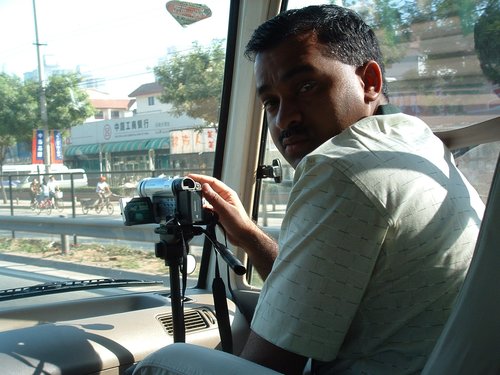
SUVA (Pacific Media Watch / Radio New Zealand International): Senior journalist Anish Chand has reportedly been sacked from his position at Fiji Television after the Attorney-General, Aiyaz Sayed Khaiyum, allegedly complained to management about a comment Chand had made in an editorial production planning meeting.
Radio New Zealand International cited a Pacific Freedom Forum statement that Chand, an award-winning journalist and graduate of the University of the South Pacific, was dismissed after saying at the meeting planning for the elections in September that the television company should source wider political views than ones that simply favoured the government.
The Pacific Freedom Forum said the Fiji government must have been informed of Chand's comments by one of his colleagues, because shortly afterwards Chand was sacked - on May 3, World Press Freedom Day.
"It speaks so powerfully of the state of media freedom in Fiji when a journalist doing the simple task of ensuring balance and a voice for all, was 'dobbed in' for being a professional -- by another colleague," says PFF chair Titi Gabi from Papua New Guinea.
It is not the first time Chand has been targetted.
In 2008, police prevented Fiji Television from airing a programme featuring Chand who was then Fiji TV's news editor, claiming that Chand made "inciting statements" in the programme. A trailer had shown Chand asking questions about how to protect a community's rights.
The following year, Chand was taken in for questioning by the police, allegedly over the regime's displeasure with his reporting. The NGO Coalition on Human Rights condemned this as "media intimidation".
And in 2010, Chand was allegedly demoted for "having friends" in the National Federation Party, which opposed the military regime leader, Rear-Admiral Voreqe Bainimarama.
The PFF statement also criticised the forced resignation of part-time regional coordinator Ricardo Morris, who is publisher and editor of Republika magazine.
The radio did not report any response from the Attorney-General.
This work is licensed under a Creative Commons Attribution-NonCommercial 3.0 New Zealand Licence.




